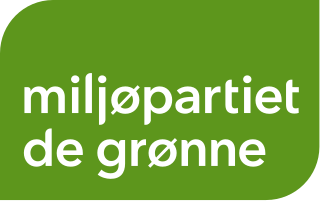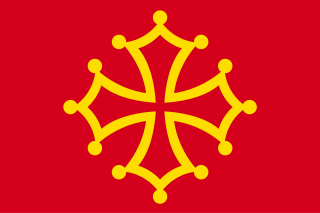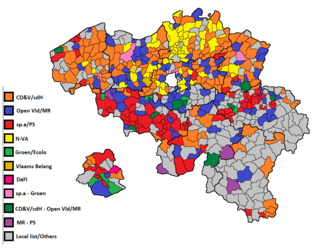Proportional representation (PR) characterizes electoral systems in which divisions in an electorate are reflected proportionately in the elected body. The concept applies mainly to geographical, and to ideological partitioning of the electorate. For instance at the European parliament each member state has a number of seats that is (roughly) proportional to its population. The same logic prevails when voters vote for parties. If n% of the electorate support a particular political party or set of candidates as their favorite, then roughly n% of seats will be won by that party or those candidates. The essence of such systems is that all votes contribute to the result—not just a plurality, or a bare majority. The most prevalent forms of proportional representation all require the use of multiple-member voting districts, as it is not possible to fill a single seat in a proportional manner. In fact, PR systems that achieve the highest levels of proportionality tend to include districts with large numbers of seats.

Party-list proportional representation systems are a family of voting systems emphasizing proportional representation in elections in which multiple candidates are elected through allocations to an electoral list. They can also be used as part of mixed additional member systems.
The electoral threshold, or election threshold, is the minimum share of the primary vote which a candidate or political party requires to achieve before they become entitled to any representation in a legislature. This limit can operate in various ways. For example, in party-list proportional representation systems an electoral threshold requires that a party must receive a specified minimum percentage of votes, either nationally or in a particular electoral district, to obtain any seats in the legislature. In multi-member constituencies using preferential voting, besides the electoral threshold, to be awarded a seat, a candidate is also required to achieve a quota, either on the primary vote or after distribution of preferences, which depends on the number of members to be return from a constituency.
Elections to determine the makeup of the legislative bodies on the three levels of administrative division in the Kingdom of Sweden are held once every four years. At the highest level, these elections determine the allocation of seats in the Riksdag, the national parliament of Sweden. Elections to the 20 county councils and 290 municipal assemblies – all using roughly the same electoral system – are held concurrently with the legislative elections on the second Sunday in September.
The additional member system (AMS), also known as mixed-member proportional representation (MMP) outside the United Kingdom, is a mixed electoral system with one tier of single-member district representatives, and another tier of ‘additional members’ elected to make the overall election results more proportional.
Mixed-member proportional representation is a mixed electoral system in which voters get two votes: one to decide the representative for their single-seat constituency, and one for a political party. Seats in the legislature are filled firstly by the successful constituency candidates, and secondly, by party candidates based on the percentage of nationwide or region-wide votes that each party received. The constituency representatives are elected using first-past-the-post voting (FPTP) or another plurality/majoritarian system. The nationwide or region-wide party representatives are, in most jurisdictions, drawn from published party lists, similar to party-list proportional representation. To gain a nationwide representative, parties may be required to achieve a minimum number of constituency candidates, a minimum percentage of the nationwide party vote, or both.
Norway elects its legislature on a national level. The parliament, the Storting, has 169 members elected for a four-year term by a form of proportional representation in multi-seat constituencies.
Open list describes any variant of party-list proportional representation where voters have at least some influence on the order in which a party's candidates are elected. This is as opposed to closed list, which allows only active members, party officials, or consultants to determine the order of its candidates and gives the general voter no influence at all on the position of the candidates placed on the party list. Additionally, an open list system allows voters to select individuals rather than parties. Different systems give voter different amounts of influence. Voter's choice is usually called preference vote.

Elections in the Netherlands are held for five territorial levels of government: the European Union, the state, the twelve Provinces, the 25 water boards and the 355 municipalities. Apart from elections, referenda were also held occasionally, but have been removed from the law in 2018. The most recent national election results and an overview of the resulting seat assignments and coalitions since World War II are shown at the bottom of this page.
Jean-Serge Brisson is a Canadian political activist, tax reform advocate, politician, and author. He is a former leader of the Libertarian Party of Canada and gained national notoriety in the 1990s for his opposition to businesses being forced to collect the provincial sales tax (PST) without being remunerated.

The Green Party is a green political party in Norway. The party holds one seat in the Parliament of Norway and also has representation in municipal councils and county councils. The Green Party advocates green politics, and has been described as centre-left by academics and voters. The party itself claims distance to the two dominant right-wing and left-wing political blocks, jointly denominated as "the fossil block".
Elections in Greece gives information on elections and election results in Greece.

Elections in Belgium are organised for legislative bodies only, and not for executive functions. Direct elections take place for the European Parliament, the bicameral Federal Parliament, the Parliaments of the Communities and Regions, the provincial councils, the municipal councils and a few district councils. Voting is mandatory and all elections use proportional representation which in general requires coalition governments.
An independent or nonpartisan politician is a politician not affiliated with any political party. There are numerous reasons why someone may stand for office as an independent.
Multiple non-transferable vote (MNTV), also known as plurality-at-large voting or block vote, is a non-proportional voting system for electing several representatives from a single multi-member electoral district using a series of check boxes and tallying votes similar to a plurality election. Multiple winners are elected simultaneously to serve the district. Block voting is not a system for obtaining proportional representation; instead the usual result is that where the candidates divide into definitive parties the most popular party in the district sees its full slate of candidates elected, resulting in a landslide.

Helge André Njåstad is a Norwegian politician for the Progress Party. He was elected to the Parliament of Norway from Hordaland in 2013 where he serves as the chair of the Standing Committee on Local Government and Public Administration. He was mayor of Austevoll from 2003 to 2013.

"Bastir!", originally the "Manifeste Occitaniste", now "Bastir Occitanie", is a pan-Occitanist movement mainly involved in French municipal elections of 2014, in French departmental elections of 2015 and in French legislative elections of 2017.

The 2016 Italian local elections were held on 5 June, with a run-off, where necessary if a candidate for Mayor obtained less than 50 percent of votes in the first round, held on 19 June.

The Belgian provincial, municipal and district elections of 2018 took place on Sunday 14 October 2018. They are organised by the respective regions:
The Dutch municipal elections of 2018 were held on 21 March in 335 municipalities in the Netherlands. This election determined the composition of the municipal councils for the following four years. The election coincided with the Intelligence and Security Services Act referendum.








